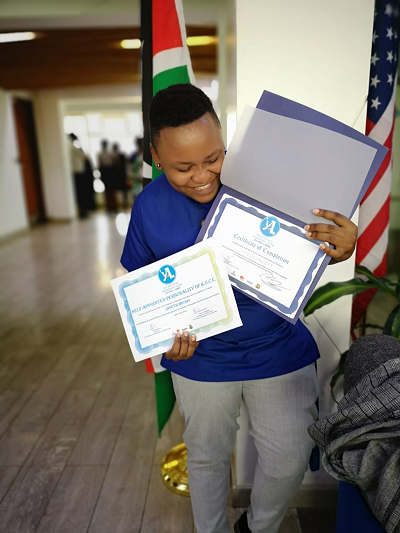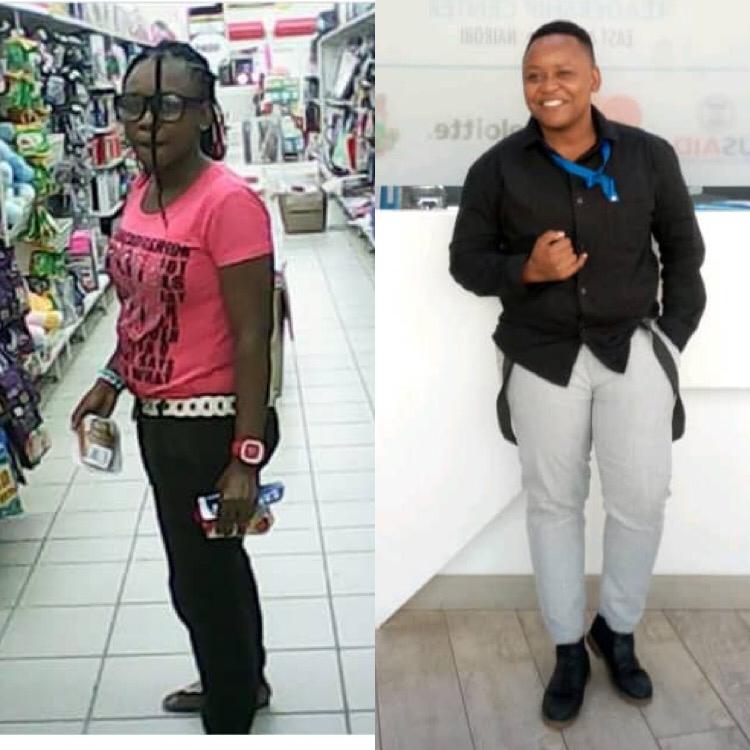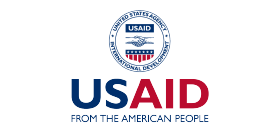Impact Stories & Blogs
Our team share their insights and perspectives on the impact our program is having on youth in East and Central Africa.

by Janeth Mkodo (Kim Malcolm), Cohort 32, Tanzania
You are probably reading the by-line and asking yourself, “Why does it have two names?” I am a transman. When growing up, I always felt that I was different from other people. However, while it was not a problem for me, I felt scared because of the community perspective towards Lesbian, Gay, Bisexual, Transgender, Queer and Intersex (LGBTQI). People have this perception that LGBTQI people are cursed and that being part of that community is sinful and “un-African.” After much reflection when I turned 20, I realized that I identified as a transman. It was difficult explaining to people because the community does not understand who a transperson is and that made me question myself. Overtime, I became comfortable with my gender identity. In 2016, I got a chance to attend LILO (Looking In and Looking Out) workshop, where people got a chance to explore their sexual orientation and gender identity. It was during this time that I identified as a transman and I was connected to the Tanzanian Transgender Initiative (TTI). I started out as a volunteer to learn how to serve the transgender community and other minority groups in Tanzania. In 2018, I was employed as an advocacy officer, community outreach worker and a peer educator with TTI. I dedicated my time to serving transg ender and gender non-conforming people who live with HIV, focusing on HIV/AIDS and human rights promotion and advocacy through in depth partnership. I am currently a human rights activist working with TTI. My role is working to motivate youth, minorities and young women in my community and in my country by making sure that we build a team that works towards achieving the same goal. Part of my leadership skills is to be flexible in accountability, transparency and hard work. I attended the four-week leadership training at YALI RLC EA and the experience gave me the opportunity to connect with other like-minded people from the staff, facilitators and participants. What I found most valuable were the ideas of coming together with different people from a variety of diverse perspectives. From this, I learnt that there was power in bringing people together. I also learnt that I needed to improve how I communicated and presented myself as a leader. People focus on building their personality, and forget to build their character. I knew that after the YALI RLC EA experience, I wanted to make that a priority for me. Through networking, developing ideas and presentation skills, I felt I was able to grow and change my mindset as a leader and as a human being. One of the things that really struck me during the program was the positive reception and questions that people came to me with as a transman. It was my first non-judgmental experience. I was accepted and at home with the community of people at YALI RLC EA. I never felt that I was different and always felt that I was a human being. This came to me as a surprise but gave me faith that living positively in a community was possible. I knew when I returned to Tanzania, I wanted to take that with me. After YALI RLC EA, I was able to integrate the learnings into my work. First, within TTI, I have changed how I communicate both within the organization and with the people that I serve. I am effective in advocating my ideas within the organization. For example, we began to arrange Sunday sessions at TTI so that new community members can come, learn and get support. Before, we used to come up with proposals without consulting the people that we serve. Now, we take a much more participatory approach in project development. We collaborate with other LGBTQI organizations in project development and implementation to grow the networks of the community both within and outside the country. We have already served over 150 people in the Dar es Salaam area. There are still many challenges I face as a leader and activist in the Tanzanian context. The public perception and the general hostility is a problem towards people in the LGBTQI community. Being in the front line of the LGBTQI movement, we are perceived as promoting homosexuality and working against the laws of the country. The risk of violence is still very high and people are afraid to connect and support each other. We have to balance activism with safety. There is also a shrinking space for people to mobilize and connect. Another challenge is the infighting among LGBTQI people, which can slow progress. However, I am reminded through YALI RLC EA that even in the most critical situations, there is room for people to work together. We are working through these challenges by building empathy among each other and the community at large, recognizing that change does not happen in a day. I know that the experience that YALI RLC EA gave me, will allow me to grow and share more with the people in my community. People, who did not think that this was a possibility for them, now believe that they have a chance to grow as well. I would recommend that every young leader apply for the leadership program, no matter the diverse background they are coming from as the Center is all about inclusion.
ender and gender non-conforming people who live with HIV, focusing on HIV/AIDS and human rights promotion and advocacy through in depth partnership. I am currently a human rights activist working with TTI. My role is working to motivate youth, minorities and young women in my community and in my country by making sure that we build a team that works towards achieving the same goal. Part of my leadership skills is to be flexible in accountability, transparency and hard work. I attended the four-week leadership training at YALI RLC EA and the experience gave me the opportunity to connect with other like-minded people from the staff, facilitators and participants. What I found most valuable were the ideas of coming together with different people from a variety of diverse perspectives. From this, I learnt that there was power in bringing people together. I also learnt that I needed to improve how I communicated and presented myself as a leader. People focus on building their personality, and forget to build their character. I knew that after the YALI RLC EA experience, I wanted to make that a priority for me. Through networking, developing ideas and presentation skills, I felt I was able to grow and change my mindset as a leader and as a human being. One of the things that really struck me during the program was the positive reception and questions that people came to me with as a transman. It was my first non-judgmental experience. I was accepted and at home with the community of people at YALI RLC EA. I never felt that I was different and always felt that I was a human being. This came to me as a surprise but gave me faith that living positively in a community was possible. I knew when I returned to Tanzania, I wanted to take that with me. After YALI RLC EA, I was able to integrate the learnings into my work. First, within TTI, I have changed how I communicate both within the organization and with the people that I serve. I am effective in advocating my ideas within the organization. For example, we began to arrange Sunday sessions at TTI so that new community members can come, learn and get support. Before, we used to come up with proposals without consulting the people that we serve. Now, we take a much more participatory approach in project development. We collaborate with other LGBTQI organizations in project development and implementation to grow the networks of the community both within and outside the country. We have already served over 150 people in the Dar es Salaam area. There are still many challenges I face as a leader and activist in the Tanzanian context. The public perception and the general hostility is a problem towards people in the LGBTQI community. Being in the front line of the LGBTQI movement, we are perceived as promoting homosexuality and working against the laws of the country. The risk of violence is still very high and people are afraid to connect and support each other. We have to balance activism with safety. There is also a shrinking space for people to mobilize and connect. Another challenge is the infighting among LGBTQI people, which can slow progress. However, I am reminded through YALI RLC EA that even in the most critical situations, there is room for people to work together. We are working through these challenges by building empathy among each other and the community at large, recognizing that change does not happen in a day. I know that the experience that YALI RLC EA gave me, will allow me to grow and share more with the people in my community. People, who did not think that this was a possibility for them, now believe that they have a chance to grow as well. I would recommend that every young leader apply for the leadership program, no matter the diverse background they are coming from as the Center is all about inclusion.



